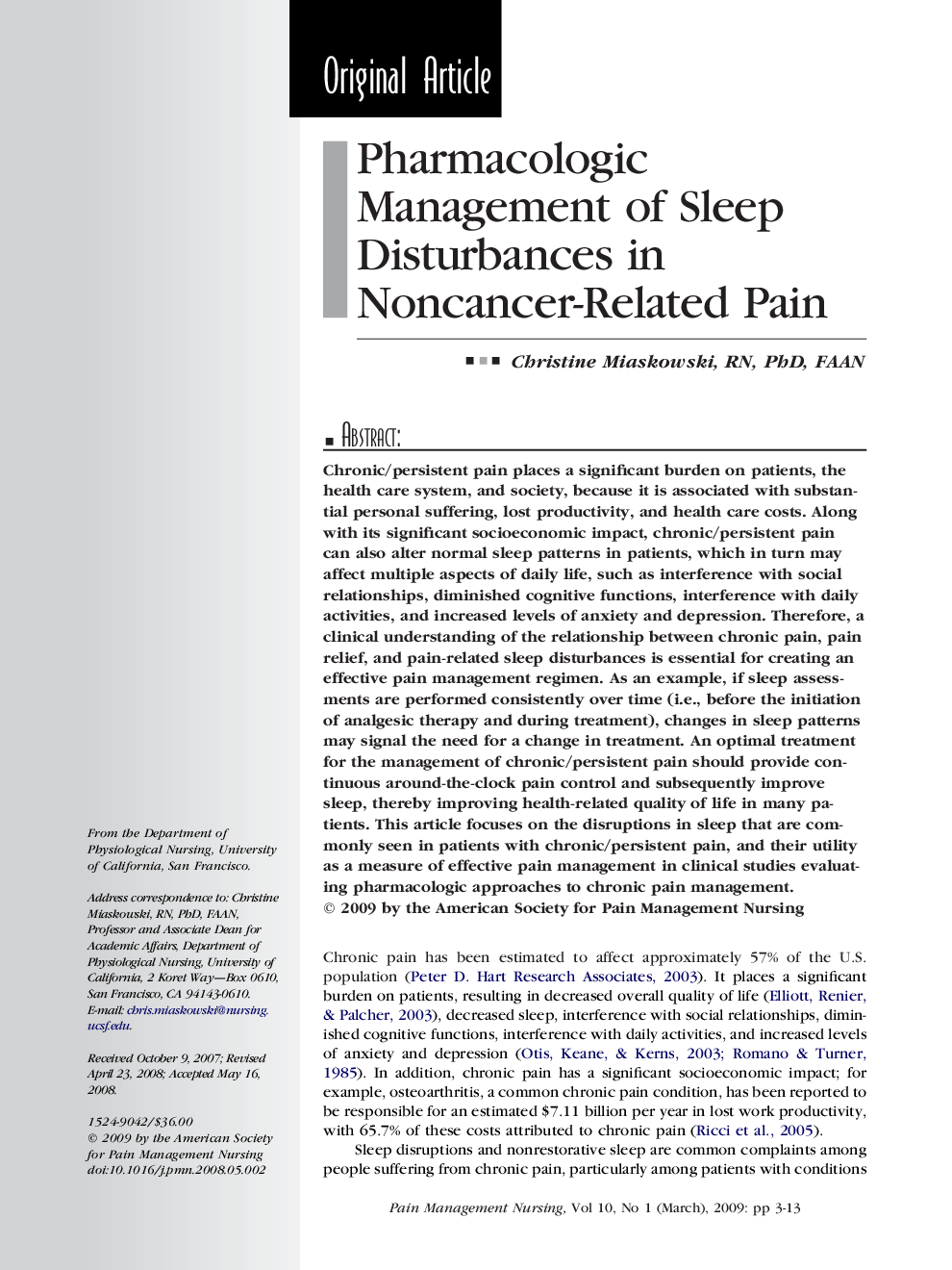| Article ID | Journal | Published Year | Pages | File Type |
|---|---|---|---|---|
| 2673968 | Pain Management Nursing | 2009 | 11 Pages |
Chronic/persistent pain places a significant burden on patients, the health care system, and society, because it is associated with substantial personal suffering, lost productivity, and health care costs. Along with its significant socioeconomic impact, chronic/persistent pain can also alter normal sleep patterns in patients, which in turn may affect multiple aspects of daily life, such as interference with social relationships, diminished cognitive functions, interference with daily activities, and increased levels of anxiety and depression. Therefore, a clinical understanding of the relationship between chronic pain, pain relief, and pain-related sleep disturbances is essential for creating an effective pain management regimen. As an example, if sleep assessments are performed consistently over time (i.e., before the initiation of analgesic therapy and during treatment), changes in sleep patterns may signal the need for a change in treatment. An optimal treatment for the management of chronic/persistent pain should provide continuous around-the-clock pain control and subsequently improve sleep, thereby improving health-related quality of life in many patients. This article focuses on the disruptions in sleep that are commonly seen in patients with chronic/persistent pain, and their utility as a measure of effective pain management in clinical studies evaluating pharmacologic approaches to chronic pain management.
